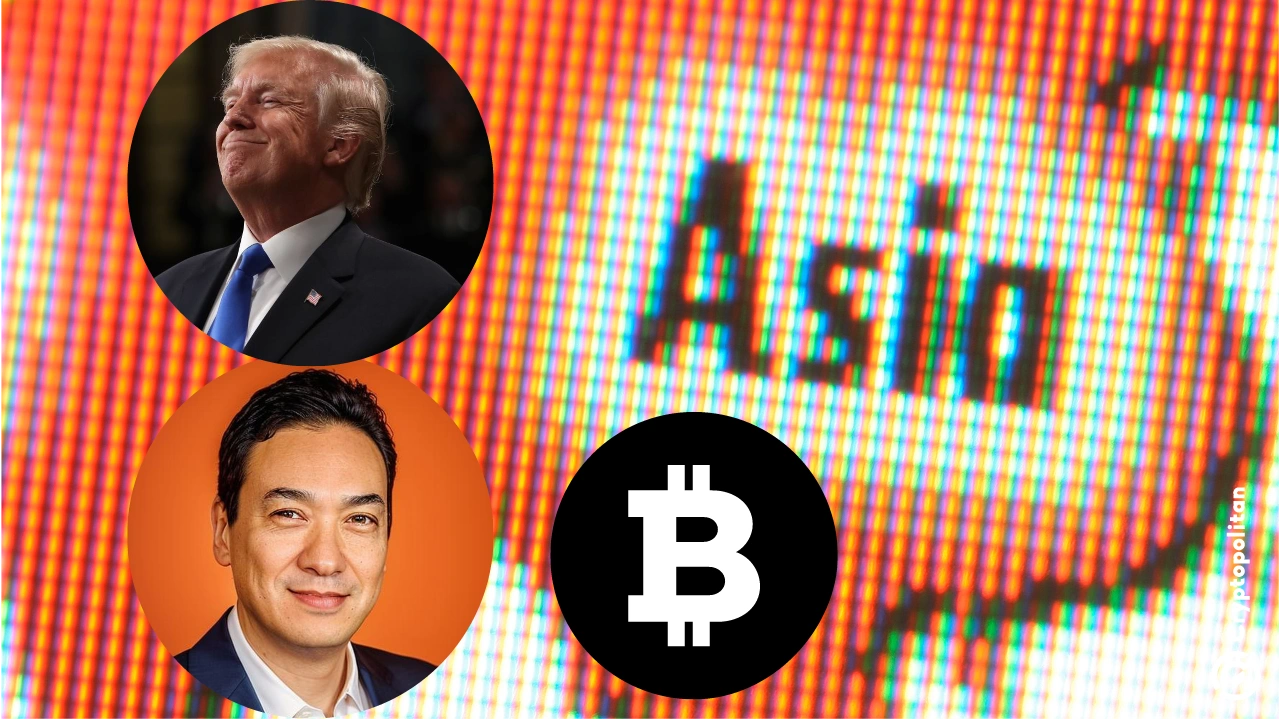At Michael Saylor’s extravagant New Year’s Eve Bitcoin bash in Miami, Simon Gerovich, CEO of Metaplanet, dropped a prediction that President Donald Trump’s upcoming Strategic Bitcoin Reserve will push Asian countries like Japan to follow suit.
Metaplanet has a reputation as Japan’s version of MicroStrategy. And Gerovich didn’t frame this as a “maybe” scenario. He was certain. “The Bitcoin community helped elect Trump,” he said. “Now, he’s expected to deliver. If America adopts Bitcoin as a strategic reserve, the rest of the world won’t just watch. They’ll act.”
Gerovich’s company switched its entire strategy in 2024 to focus on Bitcoin accumulation. “For us, April was when it clicked. All we care about now is stacking more Bitcoin for our shareholders,” he said. If 2024 was the year the world started taking Bitcoin seriously, 2025 will be the year it becomes a global reserve asset.
Trump could set off a global Bitcoin race
“Japan looks to the U.S. like a big brother,” Gerovich said. “If Trump moves forward, Japan and other Asian nations will copy the playbook. That’s how this works.”
“For third-world countries, Bitcoin could stabilize their economies,” he said. “We’re about to see the full force of game theory in action.”
In simple terms, if one country starts using Bitcoin to strengthen its reserves, others will feel pressure to do the same—or risk being left behind. Governments in the Middle East are already acting, though quietly. Gerovich shared insights from a recent Bitcoin conference in Abu Dhabi.
“We spoke to officials from the region, and they’re buying Bitcoin under the radar. They just haven’t announced it yet,” he said. “After Trump declares a Bitcoin reserve, countries will come out and say, ‘Guess what? We’ve got Bitcoin too.’”
Why governments might (and might not) jump on Bitcoin
The idea of using Bitcoin as a strategic reserve isn’t as crazy as it sounded a few years ago. Countries like El Salvador and Bhutan have already done it. El Salvador holds around 6,000 BTC, worth over $567 million. Bhutan’s stash is even bigger—almost 12,000 BTC, valued at more than $1.1 billion.
Both countries see Bitcoin as a hedge against inflation, a kind of “digital gold” for their reserves. The U.S., under Trump’s leadership, could take this idea to another level. Reports suggest a plan to buy 200,000 BTC annually for five years, totaling one million BTC.
But this isn’t without risks. Bitcoin’s volatility is legendary. Prices can swing wildly in hours, let alone months. That makes it a risky asset for national reserves. Plus, regulations are still uncertain. Governments would need rock-solid systems to manage their holdings and avoid the kind of hacks that have plagued crypto exchanges.
Then there’s the problem of utility. Critics argue Bitcoin doesn’t have the same practical value as traditional reserves like gold or oil. You can’t use Bitcoin to fuel an economy in the middle of a crisis. And let’s not forget market manipulation.
These governments could potentially destabilize markets, putting the entire industry at risk. Still, the potential upsides are hard to ignore. Bitcoin’s price appreciation is one of them. After Trump’s election win in December 2024, Bitcoin jumped over 50%, hitting $108,400.
A Step-By-Step System To Launching Your Web3 Career and Landing High-Paying Crypto Jobs in 90 Days.





